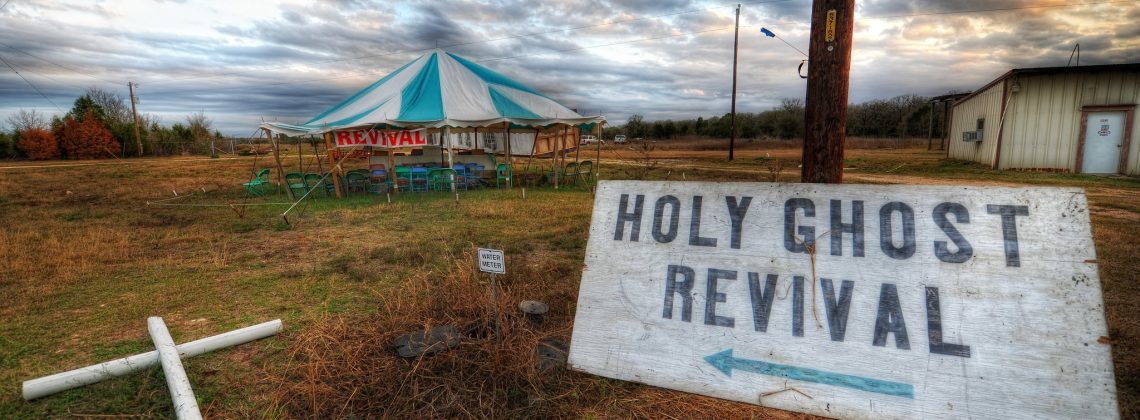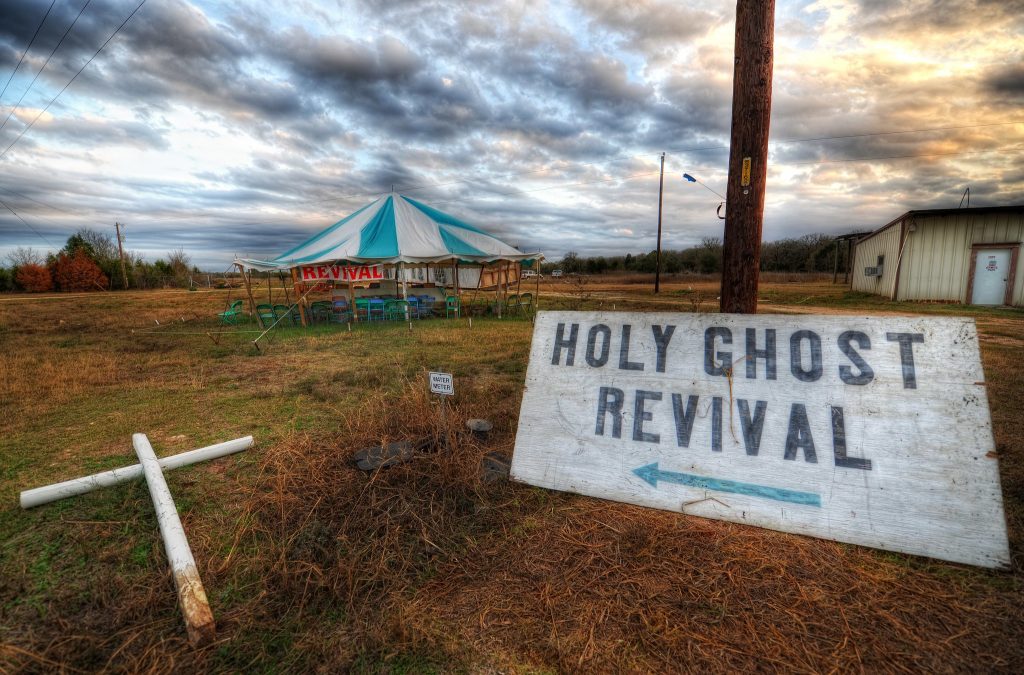

Public Religion Research Institute (PRRI) recently released its 2020 Census of American Religion. It revealed that white evangelical Christians have been in a nearly continuous state of decline since 2006. In that year they made up twenty-three percent of the U.S. population. In 2020, the percentage of white evangelicals was at 14.5%.
What has caused this steady decline? We still don’t have a full explanation. I am sure historians will sort it all out in a decade or two. But recent research suggests that young evangelicals are leaving in droves because they are tired of the myriad of ways in which their parents and grandparents have hitched their wagons to the political agenda of the Republican Party.
Someone recently asked me, “Do you think evangelical Christianity will survive the twenty-first century?” How does a believer answer such a question? The word evangelical means “good news.” For Christians, the “good news” is that Jesus Christ, through his death and resurrection, brings the Kingdom of God into our midst. The Gospel calls us to live Spirit-filled lives that bear witness of this coming Kingdom. One day wholeness—shalom—will be restored. Until then, we “see through a glass darkly.”
Will evangelical Christianity survive? Of course it will. An evangelical cannot answer this question any other way.
But this does not mean that the people who gather together in communities of evangelical faith do not need to think about reform.
Historically, American evangelicals have struggled with the work of reform. They prefer revival. If we just had another “great awakening,” the argument goes, the number of white evangelicals would rise, resulting in a moral revolution that would end poverty, racial injustice, abortion, and the moral coarsening of culture.
I believe in revival. I occasionally pray that God will pour out his Spirit on the church and bring a renewal of Christian discipleship that offers the world a glimpse of a coming Kingdom characterized by peace, compassion, and justice. But revivals are rare. Reform—which one dictionary defines as the “improvement or amendment of what is wrong, corrupt, or unsatisfactory”—happens in ordinary time. Reform requires us to climb down from the mountaintop and engage in the day-to-day labor that can result in real change.
What will it take to reform American evangelicalism? My suggestions below are not necessarily new, but perhaps when taken together they might get us somewhere.
We need to bring Billy Graham into conversation with Reinhold Niebuhr. Lately it has been open season on Graham. He didn’t go far enough in dealing with race. The so-called “Billy Graham rule” disrespects women. He got too close to Nixon. These are all fair critiques. I have made some of them myself. But evangelicals still need the Gospel that Billy Graham preached. The new birth has always been an essential component—perhaps the central component—of evangelical Christianity.
But evangelical Christians also need Niebuhr (and his disciples: Thurman, Bonhoeffer, and King) to remind us of the social dimensions of the Gospel and the dangers of cheap grace. During Graham’s 1957 New York City Crusade, Niebuhr wrote that Graham’s success as an evangelist depended on “oversimplifying every issue of life.” Graham’s gospel, he added, “promises new life, not through painful religious experiences, but merely by signing a decision card.”
We need to reorient our understanding of Christian politics. According to political scientist Glenn Tinder, Christian political engagement requires attentiveness and availability. Those who are attentive ask, “What are people in this world doing, suffering, and saying?” Those who are available ask, “Is there anything I can do about it?” Evangelical Christians need to stop fighting culture wars and learn how to practice this kind of Christian politics in the places and communities God has led them to.
We need to start listening to our neighbors. One develops empathy and love for others by listening to our neighbors’ stories. White evangelicals need to hear stories told by people of color. Male evangelicals need to listen to stories told by women. The work of reconciliation and the cultivation of the common good begin with this kind of Christian hospitality.
We need to catechize our children: Evangelical youth pastors are great at creating mountain-top experiences for kids through retreats and Vacation Bible Schools. Both of my daughters were part of small groups that did a wonderful job of exposing them to the Bible and the Christian life. But what if the megachurch on the edge of town took a lesson from the Catholics and mainline Protestants and started catechism classes where boys and girls learned Christian doctrine? What if the successful completion of those classes were required for participation in important sacraments or ordinances such as “first communion,” confirmation, and adult baptism?
We need to embrace the mystery of faith. There is too much certainty in American evangelicalism. This is ironic, since most evangelicals claim to follow and worship an “awesome God” whose character and wisdom far exceed human understanding. This kind of fundamentalism certainty leads to tribalism and anti-intellectualism. As theologian N.T. Wright puts it, “When Christians try to read off what God is doing even in their own situations, such claims always have to carry the word perhaps about with them as a mark of humility and of the necessary reticence of faith.” The word “perhaps,” Wright adds, “is always inviting God to come in and say, ‘Well, actually, no.’”
We need to teach better American history. Ever since conservative evangelicals became the Republican Party at prayer, political activists have offered carefully crafted “history” lessons designed to help them be more effective culture warriors.
The claim that the founding fathers wanted to establish a Christian nation is hard to prove, but even if the founders did want to initiate a Christian republic, as many of these purveyors of the past claim, most evangelicals would not see a problem with it. Why? Because too many evangelicals today confuse American values with Christian virtues.
For example, churches need to do a better job of helping people in the pew understand the difference between “liberty” as taught in the New Testament and “liberty” as expounded by people like Washington, Jefferson, and Adams. American evangelicals need to think more deeply about how to live in a pluralistic society. We have favored “rights” over the pursuit of the common good. This is particularly tragic in light of what the New Testament teaches about loving our neighbors.
We need to pursue intellectual discipleship. I wrote about what this might look like in my recent blog post on my late friend Bob Gorinski. As Jay Green reminded us in April, F. Scott Fitzgerald once said that “the test of a first-rate intelligence is the ability to hold two opposed ideas in the mind at the same time, and still retain the ability to function.” Christians should understand this better than most. The disciple seeks to follow the teachings of Jesus in a broken world. Ideas are always flawed in some way, but God gives common grace to all his human image-bearers. If all truth is God’s truth, then what do we have to fear? We may just find some wisdom in Plato, Marx, Nietzche, and critical race theorists, even if they do not ultimately offer a path to redemption.
I am sure there are more suggestions of reform that I can add to this list. I will keep thinking. In the meantime, keep reading Current. These are just some of the questions and issues we continue to explore at this site.
John Fea is Executive Editor at Current